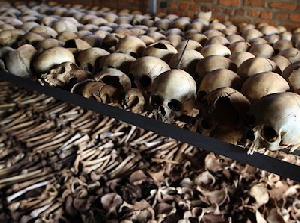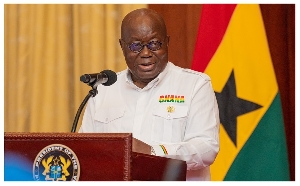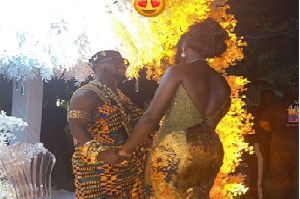- Home - News
- TWI News | TV
- Polls
- Year In Review
- News Archive
- Crime & Punishment
- Politics
- Regional
- Editorial
- Health
- Ghanaians Abroad
- Tabloid
- Africa
- Religion
- Election 2020
- Coronavirus
- News Videos | TV
- Photo Archives
- News Headlines
- Press Release
General News of Sunday, 6 April 2014
Source: Ghana Armed Forces
Ghana Armed Forces commemorate Rwandan Genocide
The twentieth Anniversary of the Rwandan genocide falls on 6 April 2014. In Ghana, the occasion will be observed by the Ghana Armed Forces as a key milestone in the annals of Ghana’s participation in UN Peace Support Operations.
The 3 Infantry Battalion formed the nucleus of the first Ghanaian Battalion of the United Nations Assistance Mission for Rwanda (UNAMIR) right from the onset of the genocide.
No region in Africa presents as staggering and horrifying images of the clash between nationalism and ethnicity than the tiny former German Central African colonies of Rwanda and Burundi, leased to Belgium from 1919 to 1962 by the League of Nations and the UN under the mandate/trusteeship arrangement. Since their independence in 1962, these twin nations have seen the worst form of ethnic rivalry known in Africa. The two major ethnic groups in the two counties- Hutu and Tutsi traded in bitter rivalries resulting in the loss of millions of lives. In April 1994, Rwanda experienced the bloodiest ethnic cleansing recent history.
Hutu extremists used every weapon they could lay their hands on - bows and arrows, machetes, clubs, traditional guns, knives, sharp nails, spears, grenades and rifles. In the killing spree and civil war that followed, the entire country became a mortuary of corpses and a flowing river of refugees. When it was over, the gruesome tally of victims was put at about 800,000. Some even put it beyond one million.
The immediate cause of the genocide and civil war was the killing of two Presidents, Juvenal Habyarimana of Rwanda, and Cyprien Ntaryamira of Burundi, in a plane clash on 6 April 1994. The plane carrying the two presidents from peace talks in Tanzania was shot down by a missile on approach to Kigali. The Hutus suspected the Tutsis of carrying out the attack and vented their anger on them. But the crisis had long historical roots, exacerbated by the invasion of the Tutsi exile force, the Rwandan Patriotic Front (RPF), into north-eastern Rwanda from Uganda in 1990. In October 1993, the UN, under the OAU-brokered Arusha Agreement, created UNAMIR to provide security for the smooth implementation of the accord.
Ghana featured prominently in UNAMIR, contributing more than half of the total of troops that participated in the operation. Out of the 5,200 soldiers that served in UNAMIR, Ghana’s contribution was 2,741. The UNAMIR force was initially created out of the OAU’s Neutral Military Observer Group and a contingent from Tunisia. It was later joined by troops from Ghana and other countries.
UNAMIR became one of the most ill-fated peace missions that the UN had undertaken. The operation was hindered by lack of a clear mandate and hamstrung by lack of resources. As then Brigadier Henry Kwami Anyidoho, Deputy Force Commander of UNAMIR, explained in his book, Guns Over Kigali, “Right from the beginning of the mission, UNAMIR was beset with logistic problems. Apart from Belgium, all the contingents came from developing countries with weak logistic bases at home”. In addition, the mission had a weak logistic and uncooperative administrative support system, and the troops and staff officers faced feeding problems.
Despite these difficulties, the Ghanaian contingent displayed diplomatic soldiering of the highest standard. When the guns roared over Kigali and the world deserted Rwanda, Ghana was the only country that kept faith with the Rwandans. Belgium, Tunisia and Bangladesh withdrew their contingents but Ghana maintained a contingent of 456 troops. And as Major General Anyidoho put it, “The figure of 456 that we kept in Rwanda throughout the war was illegal. It cannot be seen in any Security Council resolutions. We simply held on to it stubbornly since we could not do otherwise. It was a command decision.”
Signed
MAJOR EVELYN ASAMOAH
Deputy Director Information and Press Relations
for Director Public Relations











